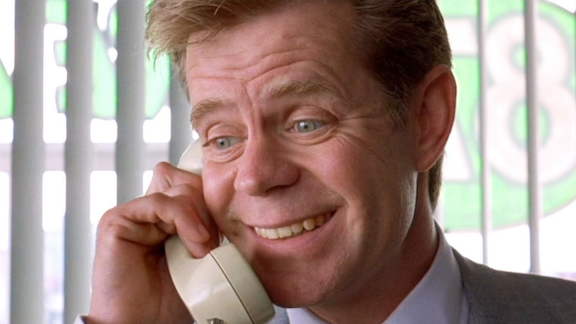-
More Woke Racism from The Capital Times
Progressives need victims! Mars needs women! My former employer is saying the quiet part out loud: that the WI Institute for Law & Liberty is racist. The emeritus editor of The Capital Times accuses the pro-bono conservative law firm of “[using] anti-racist policies for a racist cause:” With generous tax deductible funding from the right-wing Bradley Foundation of Milwaukee, the Wisconsin Institute for Law and Liberty — W.I.L.L. for short — has been successful in using those laws to allege discrimination against white people. Note the whiff of partisan brimstone! (Not that The Capital Times doesn’t offload some of…
-
How do you know? Do you do a count?
“Okay! But are ya sure? ‘Cause I mean, how do you know? Do you do a count? Or what kind of a routine do you have here?” — Sheriff Marge Gunderson questioning new car sales manager Jerry Lundegaard Grifters, many of them Somali immigrants, have stolen at least $9 Billion in taxpayer money in bogus social welfare scams right out from under the nose of Minnesota Gov. Tim Walz, the Democrats’ most recent nominee for vice president of the USA. A state audit blamed “inadequate oversight” by Minnesota government. Prosecutors claimed that although state agencies held ultimate power, Feeding…
-
War! What is it good for?
How about Peace in the Middle East? Say it, say it, say it again! We defer matters above our pay grade to columnist Bret Stephens, token conservative at the New York Times, who neatly expresses this registered voter’s opinion. “Everyone is joyful; it is one of the best days of probably 95 percent of Iranians’ lives,” one Iranian resident of the city of Karaj [said] about Khamenei’s death. … There was a time when American hearts could be moved by moments like these — when free nations, having endured years of provocations and attacks from tyrants, band together to…
-
A place where everybody knows your name
Breaking up is hard to do. RIP: Neil Sedaka. It was terrible, bad, and awful news. Sofra’s restaurant in Middleton WI was closing, your irascible host learned while seated at his usual place near the front window facing the entrance on Elmwood Avenue. Always the same seat in the same place, Thursday mornings at 7:30. Routine, blessed routine! First and third Thursdays of the month for the main group, then a smaller rump group on even numbered weeks. We are the Troupis Groupis, an unregistered political inaction group founded by the retired Dane County judge. Originally met at the Three…
-
Good thing the two weren’t Republican!
Progressivism has its privileges. Brother Mike was working the farm one morning when he got a call from The Capital Times. A supervisor, a member of his conservative caucus, had been slurring his words at a county government meeting the night before, the news reporter related. Might have been drunk. What are you going to do about it? Mike was chairman of the Dane County Board of Supervisors at the time but at that particular moment was attempting to wrest some income from the indifferent soil of rural Sun Prairie. The reporter for the progressive newspaper expressed dissatisfaction with…
-
America can feel good about itself again
and quit the party of angry! Here is why Republicans will win the mid-terms, even here in increasingly blue Wisconsin. We’re optimists, they’re not. Democrats scold you for not checking your guilty white privilege at the door of this stolen land. Maybe progressives don’t live in a world where everyone is a victim of your selfish success, but they’re working on it. We cannot encounter Elizabeth Warren without picturing Nurse Ratched sexually shaming poor Billy Bibbit in the Cuckoos Nest. Ilhan Omar flees Somalia to lecture America about how screwed up we are. Zohran Mamdani wants us to feel…

“Yer darn tootin’.”
Blaska Policy Werkes
"I’m working with ya on this thing here.” — Jerry Lundegaard, executive sales manager

David Blaska
your irascible head groundskeeper
Get us e-mailed!
Share us!
Contact us!

WOOORKKK!
A ferocious work ethic was a virtue among our elders; today it’s evidence of systemic injustice. If only those tireless, uncomplaining parents and grandparents had been given more help from the government, they wouldn’t have had to make the sacrifices for which their children, now successful politicians, praise them. — Barton Swaim, Wall St. Journal
Lemme see some I.D.
Mayor Mamdani is requiring 5 forms of ID to shovel New York City out of record snow. — NY Post
Six Big Ten football teams made The Athletic’s ranking of the top 25 transfer portal classes. Wisconsin was one of them!

Today’s Laff Riot!
Right now in America there are protesters protesting the death of a man who murdered protesters for protesting.
Governor Pritzker is so toxic even the Chicago Bears want to leave Illinois.
